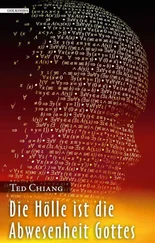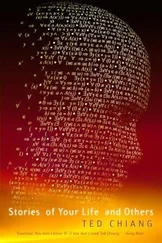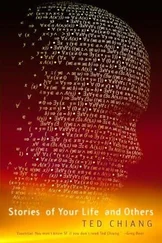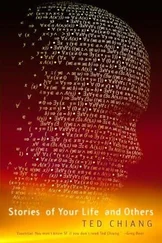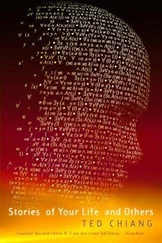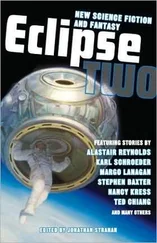Stratton felt a flood of remorse. ‘I should have given Roth what he asked.’
‘You couldn’t have known.’
‘It’s an outrageous injustice that he was the one to die. He’d nothing to do with this affair.’
‘It’s always that way, sir. Come on, let’s tend to that hand of yours.’
Davies bandaged Stratton’s finger to a splint, assuring him that the Royal Society would discreetly handle any consequences of the night’s events. They gathered the oil-stained papers from Stratton’s office into a trunk so that Stratton could sift through them at his leisure, away from the manufactory. By the time they were finished, a carriage had arrived to take Stratton back to Darrington Hall; it had set out at the same time as Davies, who had ridden into London on a racing-engine. Stratton boarded the carriage with the trunk of papers, while Davies stayed behind to deal with the assassin and make arrangements for the kabbalist’s body.
Stratton spent the carriage ride sipping from a flask of brandy, trying to steady his nerves. He felt a sense of relief when he arrived back at Darrington Hall; although it held its own variety of threats, Stratton knew he’d be safe from assassination there. By the time he reached his room, his panic had largely been converted into exhaustion, and he slept deeply.
He felt much more composed the next morning, and ready to begin sorting through his trunkful of papers. As he was arranging them into stacks approximating their original organization, Stratton found a notebook he didn’t recognize. Its pages contained Hebrew letters arranged in the familiar patterns of nominal integration and factorization, but all the notes were in Hebrew as well. With a renewed pang of guilt, he realized it must have belonged to Roth; the assassin must have found it on his person and tossed it in with Stratton’s papers to be burned.
He was about to set it aside, but his curiosity bested him: he’d never seen a kabbalist’s notebook before. Much of the terminology was archaic, but he could understand it well enough; among the incantations and sephirotic diagrams, he found the epithet enabling an automaton to write its own name. As he read, Stratton realized that Roth’s achievement was more elegant than he’d previously thought.
The epithet didn’t describe a specific set of physical actions, but instead the general notion of reflexivity. Aname incorporating the epithet became an autonym: a self-designating name. The notes indicated that such a name would express its lexical nature through whatever means the body allowed. The animated body wouldn’t even need hands to write out its name; if the epithet were incorporated properly, a porcelain horse could likely accomplish the task by dragging a hoof in the dirt.
Combined with one of Stratton’s epithets for dexterity, Roth’s epithet would indeed let an automaton do most of what was needed to reproduce. An automaton could cast a body identical to its own, write out its own name, and insert it to animate the body. It couldn’t train the new one in sculpture, though, since automata couldn’t speak. An automaton that could truly reproduce itself without human assistance remained out of reach, but coming this close would undoubtedly have delighted the kabbalists.
It seemed unfair that automata were so much easier to reproduce than humans. It was as if the problem of reproducing automata need be solved only once, while that of reproducing humans was a Sisyphean task, with every additional generation increasing the complexity of the name required.
And abruptly Stratton realized that he didn’t need a name that redoubled physical complexity, but one that enabled lexical duplication.
The solution was to impress the ovum with an autonym, and thus induce a foetus that bore its own name.
The name would have two versions, as originally proposed: one used to induce male foetuses, another for female foetuses. The women conceived this way would be fertile as always. The men conceived this way would also be fertile, but not in the typical manner: their spermatozoa would not contain preformed foetuses, but would instead bear either of two names on their surfaces, the self-expression of the names originally borne by the glass needles. And when such a spermatozoon reached an ovum, the name would induce the creation of a new foetus. The species would be able to reproduce itself without medical intervention, because it would carry the name within itself.
He and Dr. Ashbourne had assumed that creating animals capable of reproducing meant giving them preformed foetuses, because that was the method employed by nature. As a result they had overlooked another possibility: that if a creature could be expressed in a name, reproducing that creature was equivalent to transcribing the name. An organism could contain, instead of a tiny analogue of its body, a lexical representation instead.
Humanity would become a vehicle for the name as well as a product of it. Each generation would be both content and vessel, an echo in a self-sustaining reverberation.
Stratton envisioned a day when the human species could survive as long as its own behavior allowed, when it could stand or fall based purely on its own actions, and not simply vanish once some predetermined life span had elapsed. Other species might bloom and wither like flowers over seasons of geologic time, but humans would endure for as long as they determined.
Nor would any group of people control the fecundity of another; in the procreative domain, at least, liberty would be restored to the individual. This was not the application Roth had intended for his epithet, but Stratton hoped the kabbalist would consider it worthwhile. By the time the autonym’s true power became apparent, an entire generation consisting of millions of people worldwide would have been born of the name, and there would be no way any government could control their reproduction. Lord Fieldhurst – or his successors – would be outraged, and there would eventually be a price to be paid, but Stratton found he could accept that.
He hastened to his desk, where he opened his own notebook and Roth’s side by side. On a blank page, he began writing down ideas on how Roth’s epithet might be incorporated into a human euonym. Already in his mind Stratton was transposing the letters, searching for a permutation that denoted both the human body and itself, an ontogenic encoding for the species.
THE EVOLUTION OF HUMAN SCIENCE
It has been twenty-five years since a report of original research was last submitted to our editors for publication, making this an appropriate time to revisit the question that was so widely debated then: What is the role of human scientists in an age when the frontiers of scientific inquiry have moved beyond the comprehension of humans?
No doubt many of our subscribers remember reading papers whose authors were the first individuals ever to obtain the results they described. But as metahumans began to dominate experimental research, they increasingly made their findings available only via DNT (digital neural transfer), leaving journals to publish second-hand accounts translated into human language. Without DNT humans could not fully grasp prior developments nor effectively utilize the new tools needed to conduct research, while metahumans continued to improve DNT and rely on it even more. Journals for human audiences were reduced to vehicles of popularization, and poor ones at that, as even the most brilliant humans found themselves puzzled by translations of the latest findings.
No one denies the many benefits of metahuman science, but one of its costs to human researchers was the realization that they would likely never make an original contribution to science again. Some left the field altogether, but those who stayed shifted their attention away from original research and toward hermeneutics: interpreting the scientific work of metahumans.
Читать дальше


